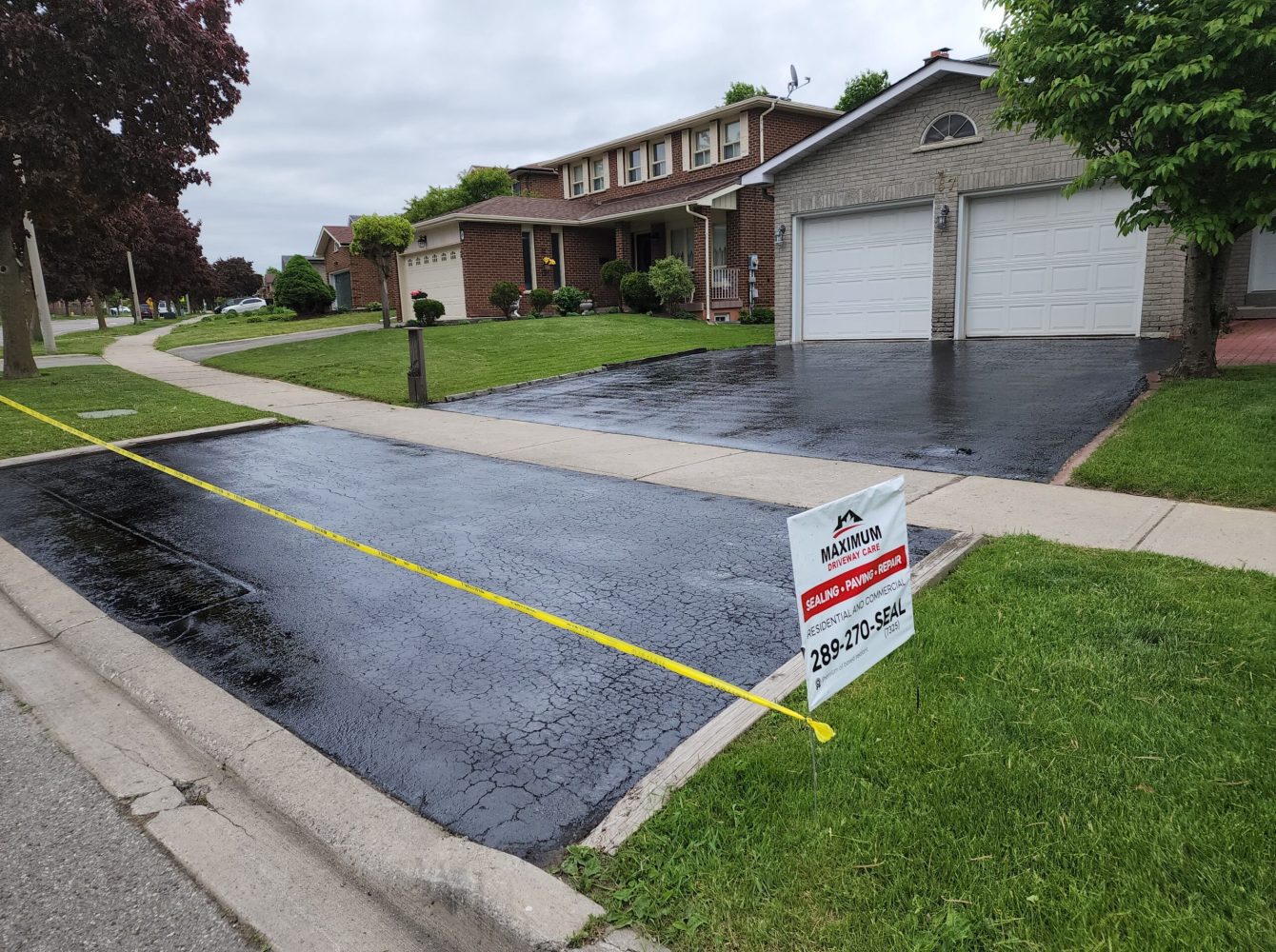Guard Surface Areas with Specialist Asphalt Sealing: Cold Mix Fundamentals
Guard Surface Areas with Specialist Asphalt Sealing: Cold Mix Fundamentals
Blog Article
Cold Mix Asphalt Vs. Hot Mix Asphalt: Which Is Right for You?

Composition Differences
Cold mix and warm mix asphalts differ significantly in their composition, with distinctive qualities that affect their efficiency and applications. Cold mix asphalt is generated by emulsifying the asphalt binder with water and an emulsifying agent prior to blending it with accumulation. This technique allows for the asphalt to be practical at lower temperature levels, making it perfect for momentary repair work and for use in colder weather condition conditions. Hot mix asphalt, on the various other hand, is made at high temperatures, generally between 300-350 ° F, which helps to accomplish much better compaction and a much more long lasting end product. The warm mix asphalt production process entails heating the aggregate and asphalt binder independently prior to combining them at the asphalt plant.
Furthermore, cold mix asphalt tends to be much less dense and extra adaptable than warm mix asphalt. This versatility makes it much better matched for locations with higher degrees of motion, such as driveways or roads with rush hour. On the other hand, warm mix asphalt is recognized for its high resilience and resistance to rutting and breaking, making it a preferred option for highways and high-traffic roads where long life is crucial.
Installation Process Variances
The procedure of installing cold mix and warm mix asphalt exhibits significant variations in their demands and procedures. Cold mix asphalt, being a much more versatile product, can be applied directly from the bag or container onto the gap or harmed location. It needs very little preparation work, such as cleaning the location and compacting the cool blend with hand devices. This makes it a hassle-free choice for fast and momentary repairs. On the other hand, warm mix asphalt necessitates a more sophisticated installment process. It entails heating up the mixture to heats prior to laying it down on an effectively ready base. The preparation consists of condensing the base, using a tack layer, and making use of heavy equipment like pavers and compactors for a smooth and long lasting finish. As a result of the home heating requirements, warm mix asphalt installations are commonly performed see by specialists with specialized tools, guaranteeing a much more structurally sound and permanent result.
Sturdiness and Long Life Elements
When thinking about asphalt options, resilience and longevity are important variables to assess for enduring sidewalk efficiency,. Hot mix asphalt (HMA) is recognized for its outstanding longevity and long life. The heats throughout the laying and blending procedure permit for far better compaction, causing a denser and stronger sidewalk structure. This brings about HMA being extra resistant to rush hour loads, harsh weather conditions, and the effects of aging compared to cool mix asphalt (CMA)
In regards to durability, HMA typically outshines CMA due to its premium stamina and resistance buildings. HMA pavements have a longer service life, needing less regular fixings and maintenance, which can convert to cost savings in the long run. In addition, HMA sidewalks are much more easily customizable to satisfy specific project demands, even more enhancing their sturdiness.
Cost Considerations
Thinking about the monetary effects is a critical element when assessing the option in between hot mix asphalt (HMA) and cool mix asphalt (CMA) for pavement tasks. While the initial expense of warm mix asphalt is usually higher than that of cold mix asphalt, HMA typically gives a more cost-efficient service in the lengthy run due to its exceptional sturdiness and longevity.
In addition to product costs, it's essential to think about the costs linked with installation and maintenance when comparing HMA you could try these out and CMA. Eventually, the choice between HMA and CMA ought to take right into account not simply the preliminary price yet additionally the lasting financial ramifications to determine the most cost-effective option for the particular sidewalk project.
Environmental Effect Contrast
Contrast of the environmental impacts in between warm mix asphalt (HMA) and chilly mix asphalt (CMA) exposes distinctive differences in sustainability methods. HMA manufacturing needs high temperatures, leading to enhanced energy consumption and greenhouse gas exhausts.
Additionally, the usage official statement of CMA usually involves reusing existing asphalt sidewalk, advertising source conservation and lowering the amount of waste sent to garbage dumps. By choosing for CMA over HMA, roadway building and construction jobs can contribute positively to ecological conservation initiatives.
Final Thought
In verdict, the choice in between cool mix asphalt (CMA) and warm mix asphalt (HMA) depends upon various factors such as structure, installation procedure, durability, long life, expense, and ecological influence. asphalt patch repair. While CMA uses a economical and quick option for minor repairs, HMA makes sure exceptional resilience and long life for rush hour areas. Take into consideration these variables very carefully to figure out which type of asphalt is the best selection for your paving requires

Considering the monetary effects is a crucial facet when reviewing the selection in between warm mix asphalt (HMA) and chilly mix asphalt (CMA) for sidewalk projects. While the preliminary expense of hot mix asphalt is commonly higher than that of cool mix asphalt, HMA typically offers an extra cost-efficient option in the long run due to its superior toughness and long life. cold mix asphalt.Comparison of the ecological influences in between warm mix asphalt (HMA) and chilly mix asphalt (CMA) exposes distinctive differences in sustainability methods.In final thought, the selection between chilly mix asphalt (CMA) and hot mix asphalt (HMA) depends on numerous factors such as make-up, installation process, longevity, durability, expense, and ecological effect
Report this page